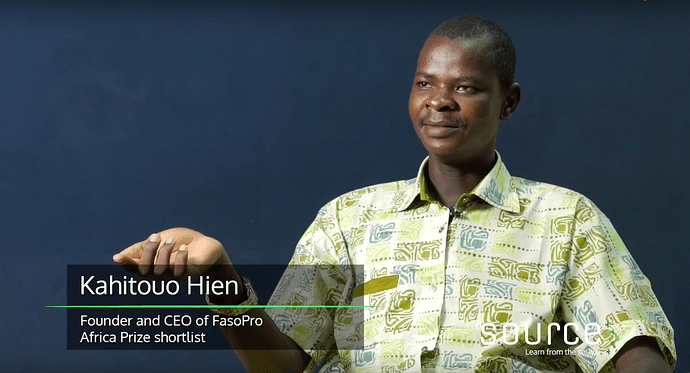“I consider myself a social entrepreneur, I try to make sure everything I am doing has a social impact.”
-Ayo Adigun, Founder of FlexiPay and DAA STEM Academy, Africa Prize 2015
Should your business plan think about your social impact? Maybe, there are a few different reasons why it might.
For Ayo Adigun and Kahitouo Hien, it was important for their businesses to have a social impact because they want to know they’re benefiting their own communities. For Matt Waitwright, it was also important because he wanted to apply for grants.
##Social Impact for Its Own Sake
One of the keys to being an entrepreneur is believing in what you’re doing. Nearly everyone we’ve interviewed has made it clear that without being motivated, they couldn’t have succeeded. So for many entrepreneurs, knowing their business is having a positive social impact is a part of their core motivation.
Ayo Adigun founded Flexipay, a financial services company, but to help him stay focused and motivated, he also created STEM. This is an academy to teach young Africans science, technology, engineering, and mathematics. So the fact that his core business didn’t have that much of a social impact didn’t stop him from finding a way to do that himself.
Kahitouo Hien has social impact on his mind from the beginning. He saw malnutrition in his native Burkina Faso as an enormous problem and wanted a business to address it. So, he ended up creating the first company to raise caterpillars for consumption on an industrial scale.
“I’m thinking about how to use caterpillars to make very nutritious products for children suffering from malnutrition. That was a first goal of my project.”
-Kahitouo Hien, Founder and CEO of FasoPro, Africa Prize shortlist
He knew the high nutritional content and low cost of these caterpillars would make a real impact on Burkina Faso. This is an important element pushing him to work hard so his business can succeed.
But there are other reasons to think about social impact as well.
##Social Impact and Grants
When co-founding Standard Microgrid, Matt Wainwright knew he wanted to build his business on grants instead of giving up equity. But in order to get those grants, he had to be able to prove the social impact of his business.
So, it was essential for him to not only ensure his business would have a social impact, but to make sure it was measurable.
“This is important. You wouldn’t typically see social impact in a business plan. Here we’ve gone and said what is access to a reliable, high quality, affordable light and it improves educational outcomes because kids can study late at night. You go down this and find all the kind of softer sides of positive impact that your business is going to have.”
-Matt Wainwright, Co-founder of Standard Microgrid, Africa Prize shortlist
By finding ways to prove his business’ social impact, Matt was able to successfully obtain $250,000 in grant funding (click here to see how he did it). Kahitouo and Ayo both built businessess (or side businesses) which are having a real positive social impact on their communities.
All of this success came from thinking about social impact as a business goal from day 1.

